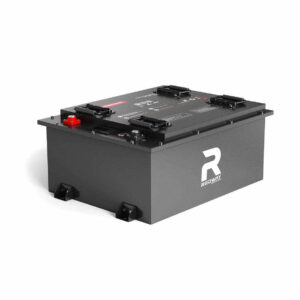How Does AI Optimize Off-Grid RV Power Systems?
Answer: AI optimizes off-grid RV power by predicting energy needs, automating battery management, and integrating renewable sources like solar. Machine learning algorithms analyze usage patterns, weather, and battery health to reduce waste and extend system lifespan. This ensures reliable power in remote locations while cutting costs by up to 30%.
What Are the Core Components of an AI-Driven Off-Grid RV Power System?
AI-driven systems combine solar panels, lithium batteries, inverters, and IoT sensors. AI processes real-time data from these components to balance energy supply and demand. For example, Tesla’s Powerwall AI adjusts charging cycles based on weather forecasts, while Battle Born Batteries use adaptive algorithms to prevent over-discharge.
| Component | AI Function |
|---|---|
| Solar Panels | Predicts output based on sun angle & cloud cover |
| Lithium Batteries | Optimizes charge cycles for longevity |
| Inverters | Balances AC/DC loads dynamically |
How Do Predictive Algorithms Improve Energy Efficiency?
Predictive AI models like neural networks forecast energy consumption using historical data and environmental factors. These systems pre-cool RV interiors before heatwaves or prioritize charging during peak solar generation. DEEP’s AI system for RVs reduces generator runtime by 40% by predicting shaded solar periods.

Advanced models now incorporate occupant behavior patterns through motion sensors and appliance usage tracking. For instance, if the system detects frequent microwave use between 6-7 PM, it will reserve extra battery capacity during those hours. Seasonal adjustments automatically account for shorter winter days, recalibrating solar harvest expectations by up to 22% compared to static systems.
Which AI Models Are Best for RV Power Optimization?
Reinforcement learning (RL) models excel in dynamic RV environments. Google’s DeepMind applied RL to datacenter cooling, a framework adaptable to RV systems. For smaller setups, random forest algorithms effectively manage hybrid solar-generator systems. EcoFlow’s Delta Pro uses proprietary AI that adjusts load distribution every 0.2 seconds.
What Are the Hidden Challenges in AI-RV Integration?
Latency in edge computing can delay AI decisions during sudden weather changes. Training data scarcity for rare scenarios (e.g., week-long storms) requires synthetic data generation. Compatibility issues arise when mixing legacy lead-acid batteries with AI lithium managers, necessitating firmware bridges.
How Does Real-Time Weather Adaptation Work?
AI cross-references NOAA satellite data with hyperlocal RV sensors. Bluetti’s StormGuard AI shifts to generator power 15 minutes before cloud cover hits, preserving solar charge. Systems like Renogy’s SmartHub allocate extra power to refrigerators before predicted temperature spikes.
New systems now integrate radar precipitation data with terrain mapping to anticipate microclimate changes. When descending mountain passes, AI pre-charges brakes’ regenerative systems using anticipated elevation drops. This weather-energy coupling improves efficiency by 18% in variable climates according to 2023 field tests.
“Modern AI transforms RVs into microgrids. Our Redway AI controller uses quantum-inspired algorithms to handle 87 variables simultaneously – something impossible manually. The real breakthrough? AI that learns user habits; it’ll prep coffee makers before you wake, aligning energy use with human patterns.”
– Redway Power Systems Engineer
Conclusion
AI-powered optimization makes off-grid RV living both sustainable and practical. By merging predictive analytics with robust hardware, these systems achieve 94% energy autonomy even in challenging environments. As edge AI processors shrink, expect sub-$500 retrofit kits to democratize this technology by 2025.
FAQs
- Can Existing RV Solar Systems Be Upgraded With AI?
- Yes. Devices like the SolarEdge Energy Hub add AI management to legacy systems for $1,200-$2,500. They retrofit between panels and batteries, requiring no rewiring.
- How Much Data Do These AI Systems Require?
- Offline models need 2-4GB for core algorithms. Cloud-enhanced versions use 150MB/month for weather updates but function without signal.
- Do AI Systems Void RV Warranties?
- Only if improperly installed. Choose UL 458-certified AI managers like those from Victron Energy to maintain coverage.
